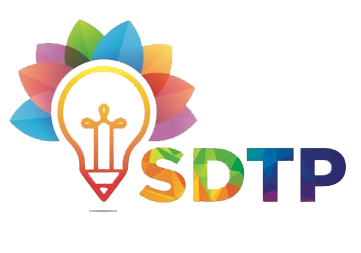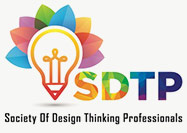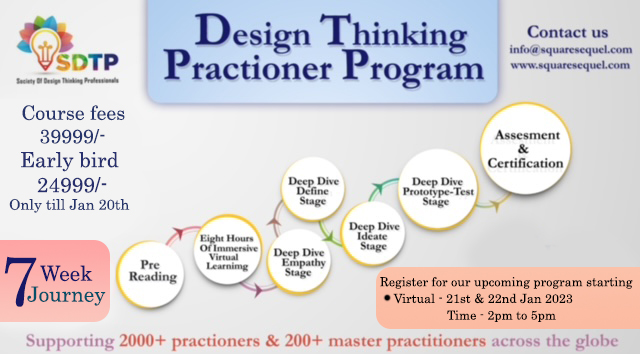ABC Innovations, a tech startup is making waves with its groundbreaking innovations in artificial intelligence. Led by a dynamic visionary CEO, the company aims to revolutionize how businesses leverage AI to streamline operations and enhance customer experiences.
The company is looking for top-tier talent capable of driving innovation and navigating the complexities of a rapidly evolving industry landscape. The hiring manager receives a flood of resumes from candidates boasting impressive credentials. Among the shortlisted candidates is Neha, a highly qualified engineer, who strides confidently, armed with an impressive resume and a wealth of technical expertise. However, her rigid problem-solving approach and reluctance to collaborate raise concerns among the hiring team. Despite her qualifications, doubts emerge about her fit with the company’s dynamic culture.
Meanwhile, Amar, with comparatively less conventional experience but a passion for learning and a collaborative mindset, brings a different energy to the table. Amar’s insatiable curiosity and knack for thinking outside the box set him apart from the crowd. During the interview, his enthusiasm is palpable as he shares his experiences tackling complex coding challenges and collaborating with diverse teams. While his technical skills may not be as polished as Neha’s, Amar’s willingness to learn, adapt, and collaborate resonates with the hiring team.
In the end, it’s Amar who joins the company, exemplifying the company’s values and propelling it to new heights with his innovative spirit. This emphasizes the importance of hiring for cultural fit and collaboration alongside technical skills, as demonstrated by Amar’s impact on the company’s success.
The secret of my success is that we have gone to exceptional lengths to hire the best people in the world.
— Steve Jobs
Steve Jobs understood the importance of building the best team possible, and it’s no mere coincidence that his visionary leadership propelled Apple to unprecedented heights of success. By painstakingly selecting individuals, Jobs cultivated a culture of excellence that permeated every facet of the company. The result? Apple emerged as a global powerhouse, revolutionizing industries and shaping the future of technology.
Let’s understand in detail the importance of finding the right candidates to attain sustainable growth in today’s competitive market.
Why Invest Time and Effort in Hiring Right?

Investing time in hiring the right people is not just a requisite; it’s a strategic investment in the bountiful future of your business. While the process may be complex and time-consuming, its dividends are immeasurable. Your employees are the quiddity of your organization, and choosing individuals who possess the necessary skills and align with your company culture and values is essential.
Productivity
Every employee plays a role in shaping the productivity of your organization. Bringing in the right people can significantly boost your company’s strata and reduce the need for constant hiring. They’ll align their goals with the company’s mission and understand that their success is intertwined with the organization’s success.
Ripple Effect
Employees have a ripple effect on their colleagues, either positively or negatively. A well-chosen employee can have a lasting impact, not only on your organization but also on those around them. Consider partnering with a specialist recruitment agency to find individuals who inspire, motivate, and collaborate effectively with their coworkers. Hiring the right person fosters synergy and draws a ballpark figure.
Reputation
Hiring employees comes with inherent risks, one of the most serious being damage to your company’s reputation. In today’s digital age, employees often have access to sensitive information and systems. Entrusting this to the wrong person can lead to leaks or misuse. It’s crucial to find individuals with integrity who will safeguard your organization’s reputation.
Customer Satisfaction
You might wonder how hiring the right employee affects customer satisfaction. Exceptional employees not only respect their colleagues but also prioritize their customer base. The right person will possess excellent communication and interpersonal skills, attracting and retaining loyal customers. Research has shown that a negative customer experience is the primary reason clients discontinue their association with a company.
By dedicating time and resources to finding the right fit, you’re laying the foundation for a strong and cohesive team that will drive innovation, productivity, and ultimately, business growth. Remember, the best businesses are built on the shoulders of exceptional employees, and investing in hiring the right people early on sets the stage for long-term success and sustainability.
How to Make Smart Hiring Decisions?

To build a dynamic team and make savvy hiring choices, it’s vital to attract top-notch candidates for your open roles. While it might be tempting to compile a laundry list of qualifications, in search of the perfect fit, this approach could backfire. In today’s fiercely competitive job market, overly rigid requirements risk narrowing your talent pool unnecessarily, potentially missing out on exceptional candidates.
According to Harvard Business Review, automated hiring platforms are filtering out over 27 million “hidden” workers in the US alone. These are applicants with unconventional backgrounds, such as caregivers, veterans, and immigrants, who might bring invaluable skills and perspectives to your team.
To overcome this challenge and reel in the talent they crave, hiring managers are embracing a fresh perspective. Rather than fixating solely on credentials, they’re shifting their focus to assess candidates based on their skills, competencies, and transferable experiences. This approach not only widens the net to capture a diverse array of talent but also opens doors to innovative thinking and fresh perspectives within the organization.
Here are three effective strategies companies can implement to upskill and reskill their workforce, as well as adopt a skills-based approach to hiring new employees:
Adopt a Skills-Based Hiring Approach
A shift is underway in hiring practices, with a 21% increase in job postings emphasizing skills and responsibilities rather than qualifications. Companies are increasingly valuing candidates’ potential for growth over their past credentials. To facilitate this shift, businesses should rethink job descriptions to focus on desired outcomes rather than specific qualifications. Emphasizing skills allows for a more diverse candidate pool without unnecessary barriers. During the hiring process, evaluating candidates based on skills assessments, such as coding tests and innovative soft skill assessments, can help identify top talent. Incorporating discussions about learning commitments during interviews can also attract candidates and signal a commitment to ongoing development.
Foster New Career Paths
Many leading companies recognize the urgency of upskilling their employees and have invested substantial resources to future-proof their workforce. For instance, JPMorgan Chase injected an additional $350 million into its $250 million upskilling initiative, while Amazon committed over $700 million to provide training to its employees. Similarly, PwC has earmarked $3 billion to upskill all 275,000 of its employees over the next few years. The COVID-19 pandemic has underscored the need for rapid retooling, prompting organizations of all sizes to realign employee skills with evolving business priorities.
Allocate Learning Time and Incentives
A survey by Glint revealed that a staggering 97% of employees are keen to expand their learning opportunities. Executives and managers should emphasize the importance of ongoing education for personal career growth and allow employees to dedicate time to learning during work hours. Encouraging staff to block out regular time for learning on their calendars can foster a culture of continuous development. Offering incentives and recognition for participation in learning programs can further motivate employees, with executive and manager involvement serving as a crucial example.
A broader and more diverse talent pool, coupled with potentially stronger retention rates, can significantly benefit organizations. LinkedIn data reveals that employees without a traditional four-year degree tend to stay at companies 34% longer than their degreed counterparts. While this statistic may suggest difficulty in finding alternative employment, it also indicates higher engagement levels and a sense of investment from the company in their success. In line with this, LinkedIn’s 2018 Workplace Learning Report highlights that 94% of employees are inclined to remain with a company longer if it prioritizes their career development.
Adopting a skills-based approach to hiring allows employers to consider diplomas and titles alongside assessments, certifications, and endorsements as indicators of a candidate’s capability and fit. By shifting the focus to skills, companies can expand their talent pools, making it easier to identify top-quality applicants for challenging roles. Moreover, fostering a culture of continuous learning post-hiring ensures that employees remain engaged and equipped to adapt to evolving demands. Embracing this approach is how organizations will effectively recruit and develop talent for the future, rather than relying on outdated practices of the past.
https://www.northropgrumman.com/careers/students-and-entry-level-careers-start-a-career-of-purpose
https://www.harvardbusiness.org/smarter-hiring-decisions-start-with-skills/
https://learning.linkedin.com/resources/workplace-learning-report-2018
https://www.constructionweekonline.com/cloud/2021/07/07/hiring-talent.jpg
https://e2ehiring-cms-assets.s3.ap-south-1.amazonaws.com/Recruiting_mistakes_dfe1c5143d.jpg
Written By: Dr. Jimmy Jain
Edited By: Afreen Fatima
Society of Design Thinking Professionals









